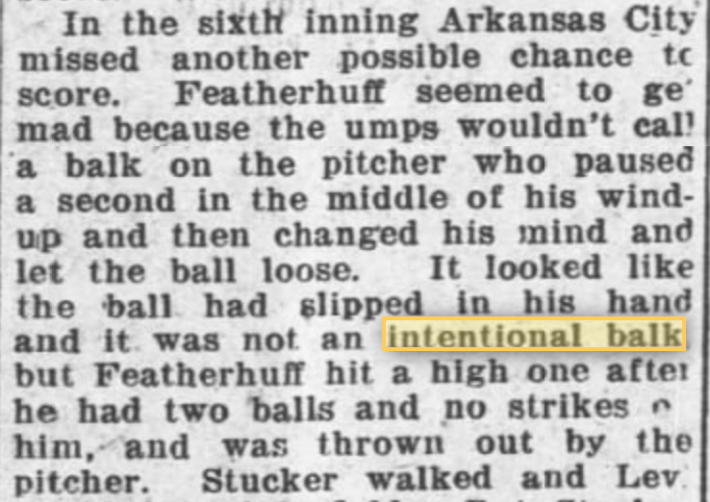Alex Bregman went nuts Thursday afternoon. He socked two dingers, ripped two doubles, scored four runs, and tallied up six runs batted in, in a brutal 21–5 Astros victory over the Chicago White Sox. That is not what we are here to discuss. We are here to discuss a moment from Tuesday's game, between these same two teams, when Bregman doubled in the fifth inning and then immediately advanced to third on a Dylan Cease balk. A very suspicious looking balk, in fact:
Dylan Cease, Intentional Balk Mechanics 😂 pic.twitter.com/fUwahnY95X
— Codify (@CodifyBaseball) August 17, 2022
It would appear that Cease's brain either shorted out for a moment, or that he intentionally committed a balk, moving Bregman 90 feet closer to scoring an insurance run for the visiting Astros. What is going on here? Is Cease throwing the game?? No. As pointed out by Ryan Taylor of NBC Chicago, Bregman is considered "one of the best sign stealers" in the game today, good enough at deciphering the signs of the opposition that you would rather have him on third, where his view of the catcher's crotch region is obstructed, than on second base, where he can swipe signs and communicate with his teammate in the batter's box.
But what about the gizmo, you are asking, very reasonably. The gizmo! Major League Baseball introduced PitchCom technology this season, allowing catchers to relay signs to the pitcher via a little earpiece connected wirelessly to a keypad worn on the catcher's wrist. Unless Alex Bregman is running some sort of cutting-edge radio-interception technology—can't entirely rule it out with the cheating-ass Astros—surely he cannot steal signs transmitted via the gizmo! Simply plug in the gizmo, transmit pitch types and locations without any hand signs, and leave a neutralized Bregman to stew in frustration on second base.
Ah, but this is precisely what the dastardly Bregman wants you to think. According to former Texas Rangers manager Chris Woodward, Bregman doesn't even need signs in order to figure out what a pitcher intends to throw. How does he do it? Woodward says Bregman is able to discern from a pitcher's grip and from the catcher's early set up both the pitch type and the location, and is somehow able to communicate this information to his teammate in the batter's box in time for that teammate to gain a game-breaking advantage. Woodward told the Dallas Morning News last week that Bregman might be the best in the business at exploiting a battery that tips pitches. "That’s not cheating. That’s saying, 'Hey, I see a grip. You’re exposing it to me,'" explained Woodward, following an August 10 Rangers win over the Astros in extras. “If you don’t have your things lined up, if you’re exposing yourself even a little bit, they’ll get you.”
This came up with Woodward in the postgame because the Astros opened their half of the 10th inning with Bregman on second, as the dreaded zombie runner. What did the Rangers do? They intentionally balked him over to third, with no outs, just to avoid giving him a view of the finger placement of relief pitcher Jonathan Hernández.
The classic Intentional-Balk@Rangers | #StraightUpTX | 📺: BSSW pic.twitter.com/zGyn4X6XMx
— Bally Sports Southwest (@BallySportsSW) August 11, 2022
It may be impossible to know this, but there's a solid chance Alex Bregman is the first player in history to be intentionally balked twice in one week. But the practice did not originate with Woodward's Rangers, nor was it invented in response to the Astros' cheatin' ways. Kenley Jansen raised some eyebrows against the Cubs back in June 2019 when, on the advice of Dodgers bench coach Bob Geren, he intentionally balked Jason Heyward over to third with two outs and a two-run lead. Jansen said at the time that Geren "came up with" the idea of using an intentional balk to eliminate sign-stealing as a concern under certain circumstances; Wikipedia credits Geren with introducing the idea of the intentional balk to Major League Baseball, suggesting that it is a recent phenomenon tied to the rise of sign-stealing in today's game.
To this I say: Codswallop! On May 3, 2005, Michael Cuddyer of the Minnesota Twins took second on defensive indifference, with two outs in the ninth inning and his team down 4–2 to Cleveland. Cleveland closer Bob Wickman, facing Shannon Stewart, soon balked, sending Cuddyer to third, before narrowly escaping the jam and preserving the win. Wickman left no ambiguity about the sequence. "I did it on purpose," he said after the game, explaining that he simply didn't want a potential sign-stealer behind him, on second base. "I'm not saying he was tipping my pitches, but with a two-run lead it didn't matter if I balked him and moved him to third, where he couldn't do it." Wickman's gambit was picked up by sports sections at various newspapers around the country, from the Miami Herald, to The Columbian of Vancouver, Wash., to The Daily Star of Sunbury, Penn. I'm not necessarily accusing Geren of doing a Stolen Valor by claiming to have come up with the intentional balk all on his own, but he was working in the majors as the bench coach of the Oakland Athletics in 2005, so he almost certainly would've been aware of this.
Going back even further, there are mentions of the concept of the intentional balk in baseball stories going back as far as 1919, when the Arkansas City Daily Traveler described one of the players on the local team as upset after an opposing pitcher pulled pretty much exactly the maneuver deployed by Cease against Bregman Tuesday night. "Featherhuff seemed to get mad because the umps wouldn't call a balk on the pitcher who paused a second in the middle of his windup and then changed his mind and let the ball loose," describes the lively gamer, which chronicles how Arkansas City's new southpaw "twirler" made the ball "behave as beautifully as President Wilson did the old democratic congress," but saw his efforts spoiled when his teammates failed to "clout the apple at opportune moments."
Here's the key part: "It looked like the ball had slipped in [the offending pitcher's] hand and it was not an intentional balk." It's not clear from the story whether there was a runner on second at the time of the non-balk balk that caused Featherhuff's huff, but clearly the concept of the intentional balk was already established, and known at least to baseball observers savvy enough to appreciate a pitcher for whom "everything is working fine as frog's hair."

I find the idea of keen-eyed old-timey hitters getting so slick with sign-stealing that opposing pitchers would feel compelled to intentionally balk to be charming and wonderful. I find the idea of a modern player forcing opposing pitchers to intentionally balk due to sign-stealing to be repugnant. And I find the idea of a Houston Astro forcing more than one opposing pitcher to intentionally balk due to being the best in the business at sign-stealing to be absolutely sickening and horrifying. Alex Bregman should have his eyeballs pierced with red-hot wool needles.






